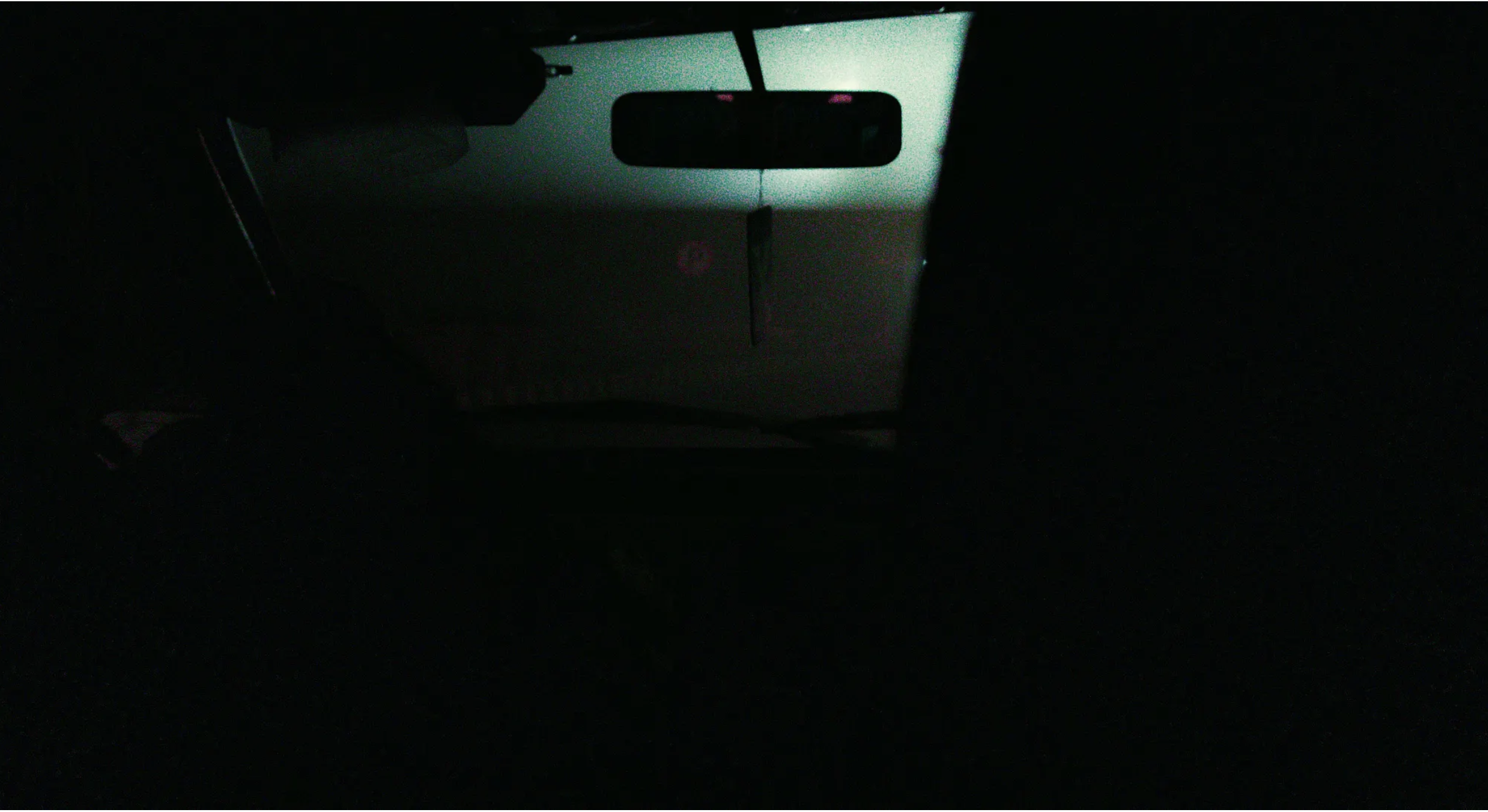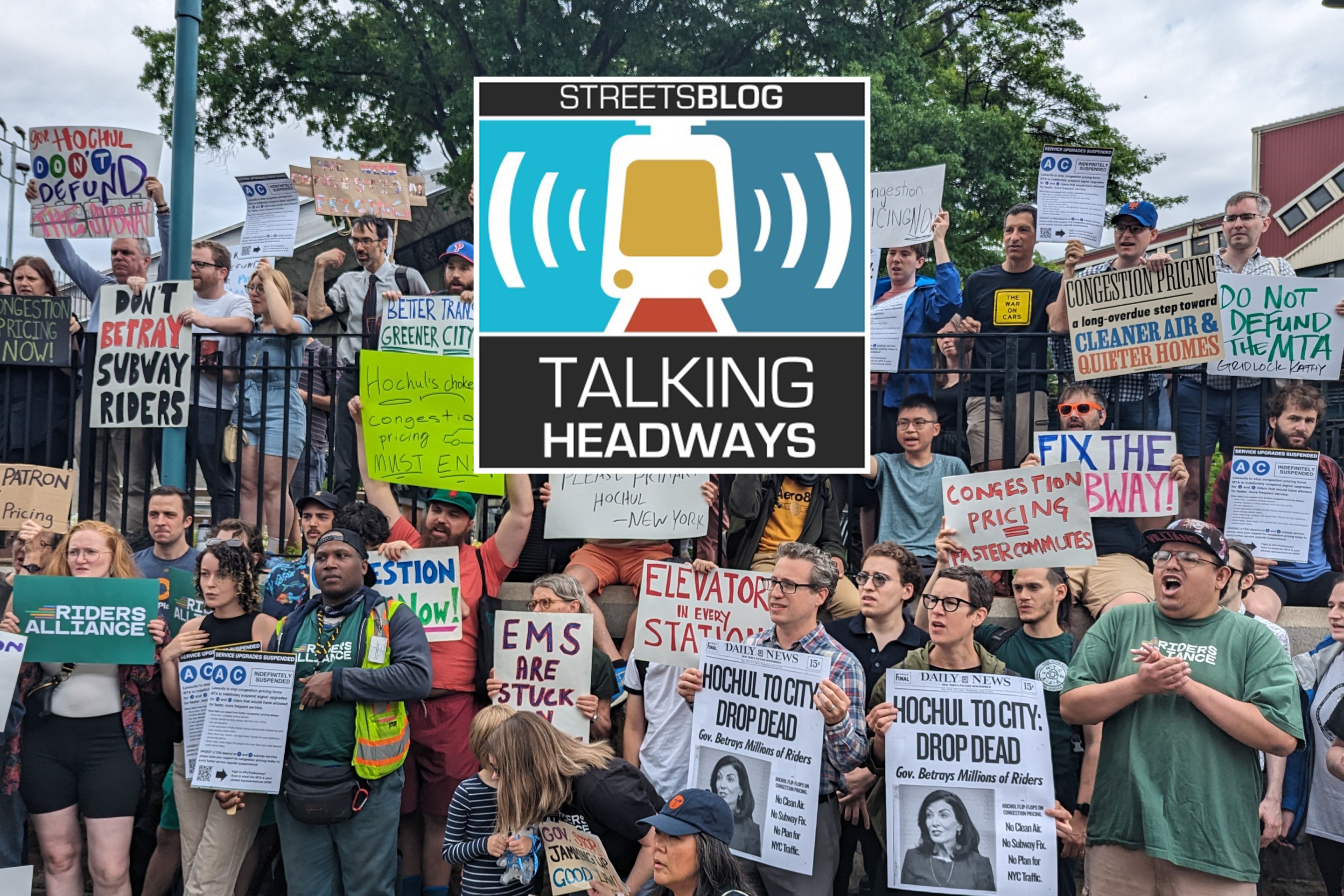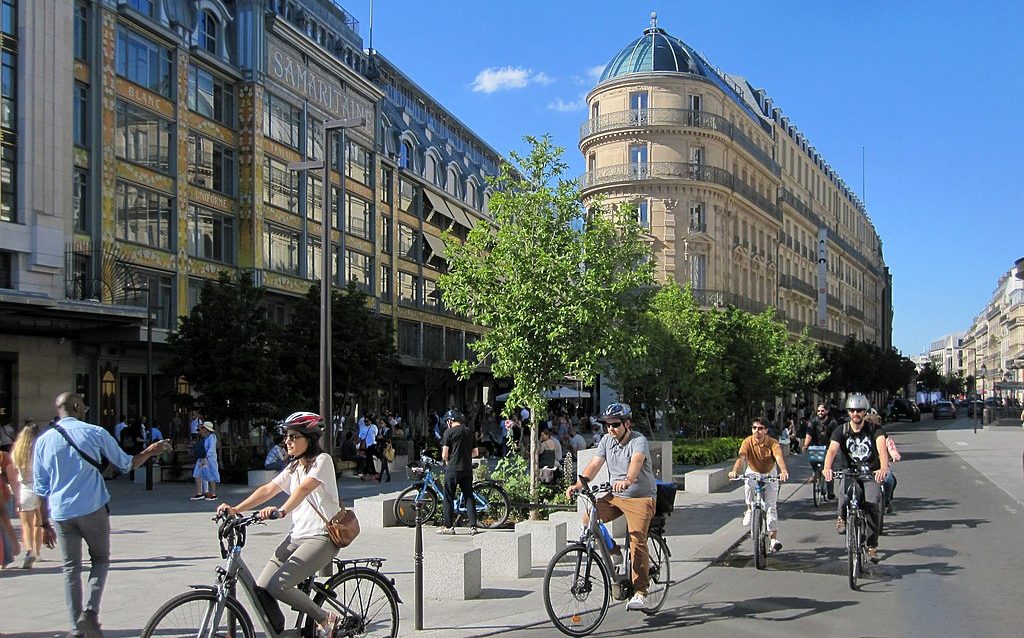This article was originally published in the Vision Zero Cities Journal, released as part of Transportation Alternatives’ 2025 Vision Zero Cities conference, which will take place October 28-30 in New York City.
On a chilly day in January, Jose Alvaro, his wife, and their three kids piled into the family car to grab some baby formula at the grocery store. It was a routine trip. But when police in Lubbock, Texas, pulled them over — reportedly for a license plate issue — their lives took a catastrophic turn.
Alvaro, 29, was undocumented. Though he had no criminal record and though he was in the process of applying for a green card, the officer contacted ICE. Soon, immigration officers swarmed the car and detained Alvaro for deportation, his four-year-old son sobbing in the back seat.
The criminalization of minor transportation offenses — and their enforcement through discriminatory stops — has wrought havoc among Black, brown, and immigrant Americans for years. These communities have long understood that seemingly routine stops can lead to arrest, police violence, or deportation proceedings, sowing distrust and endangering the person stopped, as well as making it harder for law enforcement agencies to keep residents safe.
Alvaro’s stop shows how immigrant communities must now also contend with the heightened fear of a minor stop leading to rapid deportation, perhaps without the protection of due process.
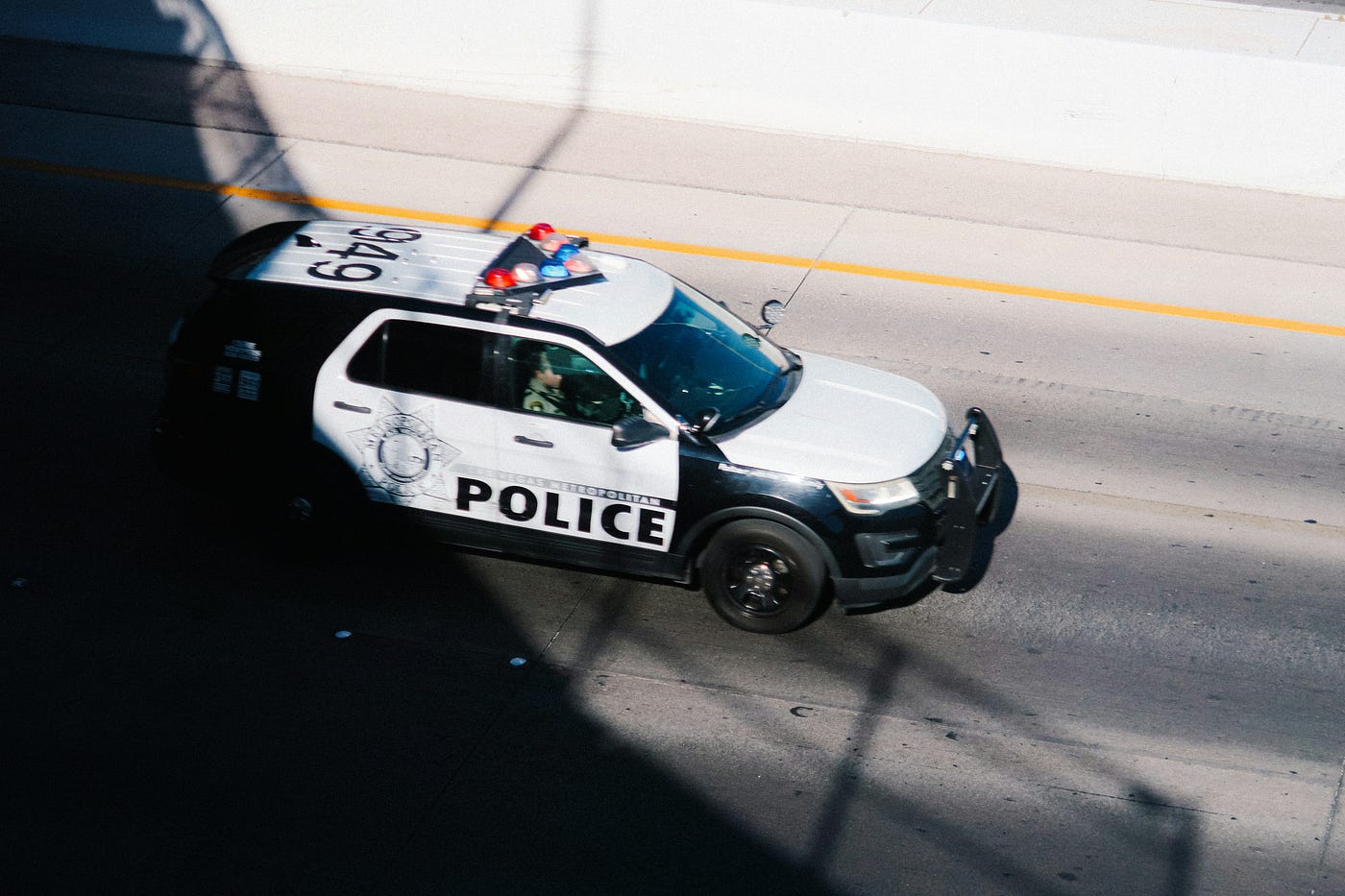
Reform is badly overdue. By decriminalizing minor violations or deemphasizing their enforcement, state and local leaders have the opportunity to address the longstanding discriminatory effects of these policies and protect families from cruel and inhumane separation — while also improving relationships between police and the communities they serve.
Minor Stops, Major Consequences
Routine traffic stops are the most common police-initiated interactions Americans have with the police. They happen at the discretion of individual police officers, and evidence shows persistent inequities in how they’re employed. Compared to white drivers, Black drivers in America are 20% more likely to be stopped for traffic violations, and stops of Black drivers are 151% more likely to result in a search.
Though different experts draw different divisions, we can broadly classify traffic stops into two categories: safety stops and investigatory stops. Safety stops, as the name suggests, address moving violations like speeding, running a red light, and erratic driving. Investigatory stops are prompted by more minor, typically non-safety-related violations — expired registration stickers, broken taillights, and issues with license plates. A relic of the broken-windows policing movement, investigatory stops are often used by police as an excuse to search for more serious criminal activity and to raise revenue from fines.
The over-enforcement of investigatory stops among communities of color has had massive consequences. Fines can bury already poor drivers in cycles of debt. Stops risk pulling individuals into the justice system and exposing them to violence.
At the societal level, discriminatory overpolicing degrades trust between communities of color and the police, potentially loweringneighbors’ willingness to report crimes — a problem that has been compounded by the government’s recent decision to roll back police accountability measures. The emphasis on investigatory stops also diverts resources from a more beneficial focus on traffic safety, including improved roadway design.
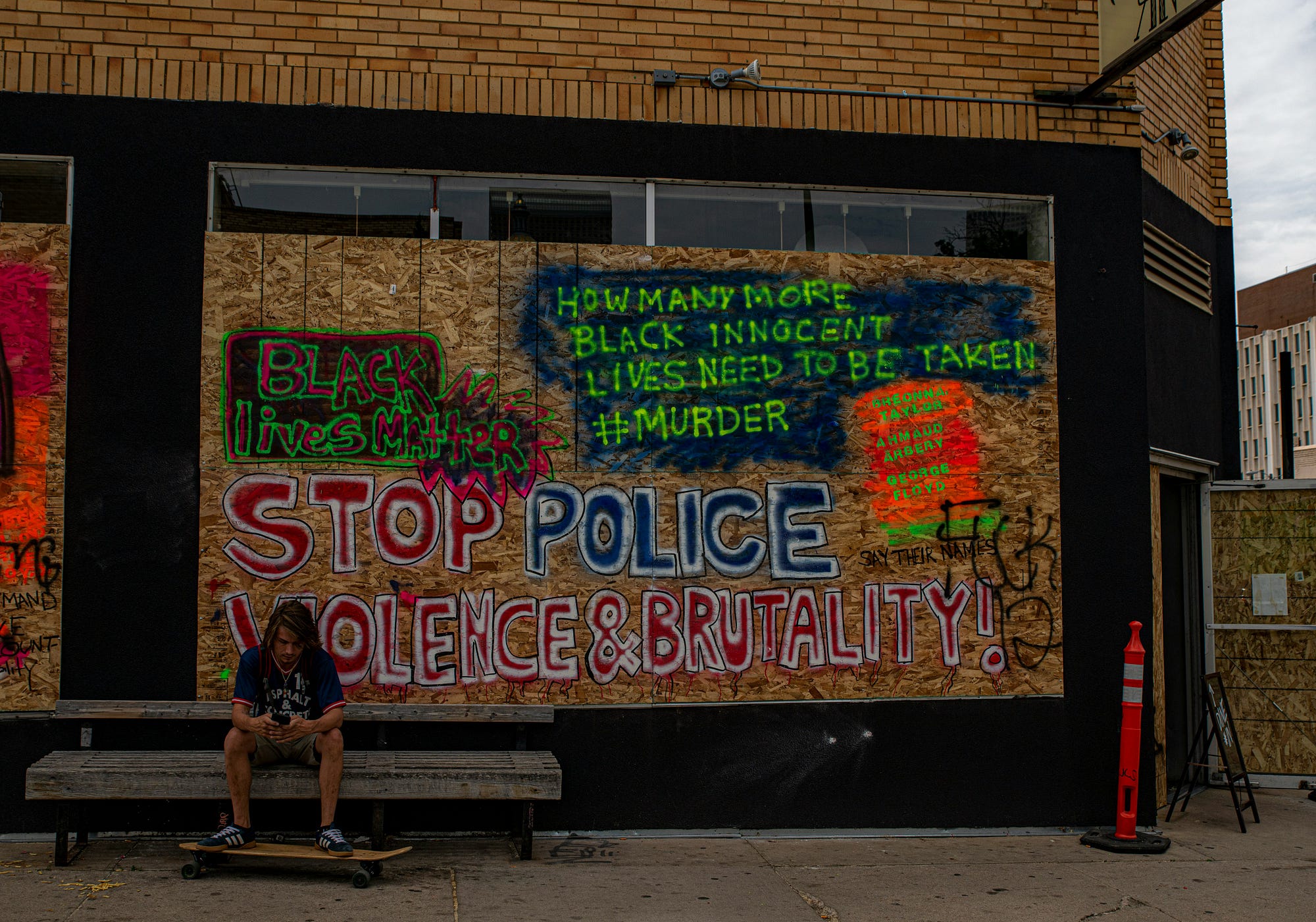
Not only are traffic stops damaging to communities, recent research suggests that they are largely ineffective. When the Policing Project examined the effects of traffic stop policing in Nashville, Tennessee, we found that stop rates had no impact on long-term vehicular crime trends. We also found that of all non-moving violation stops, only about 2% led to an arrest or the recovery of contraband such as firearms.
This is consistent with research showing that finding contraband during traffic stops is like locating a needle in a haystack.
This is far from the first time the federal government has leveraged minor stops as a gateway to immigration enforcement. Advocates have decried this phenomenon for many years, dubbing it the “traffic-stop-to-deportation pipeline.”
What’s novel is the current enforcement fervor, which has struck terror into the hearts of immigrants — documented and undocumented alike — as they use public roads. Fear has now spread even to tourists and green-card holders who have been detained for paperwork problems, and international students who must now worry that traffic violations may lead to the revocation of their student visas.
Beneath it all is the well-founded concern that an immigration proceeding would not go forward according to the constitutional guarantee of due process.
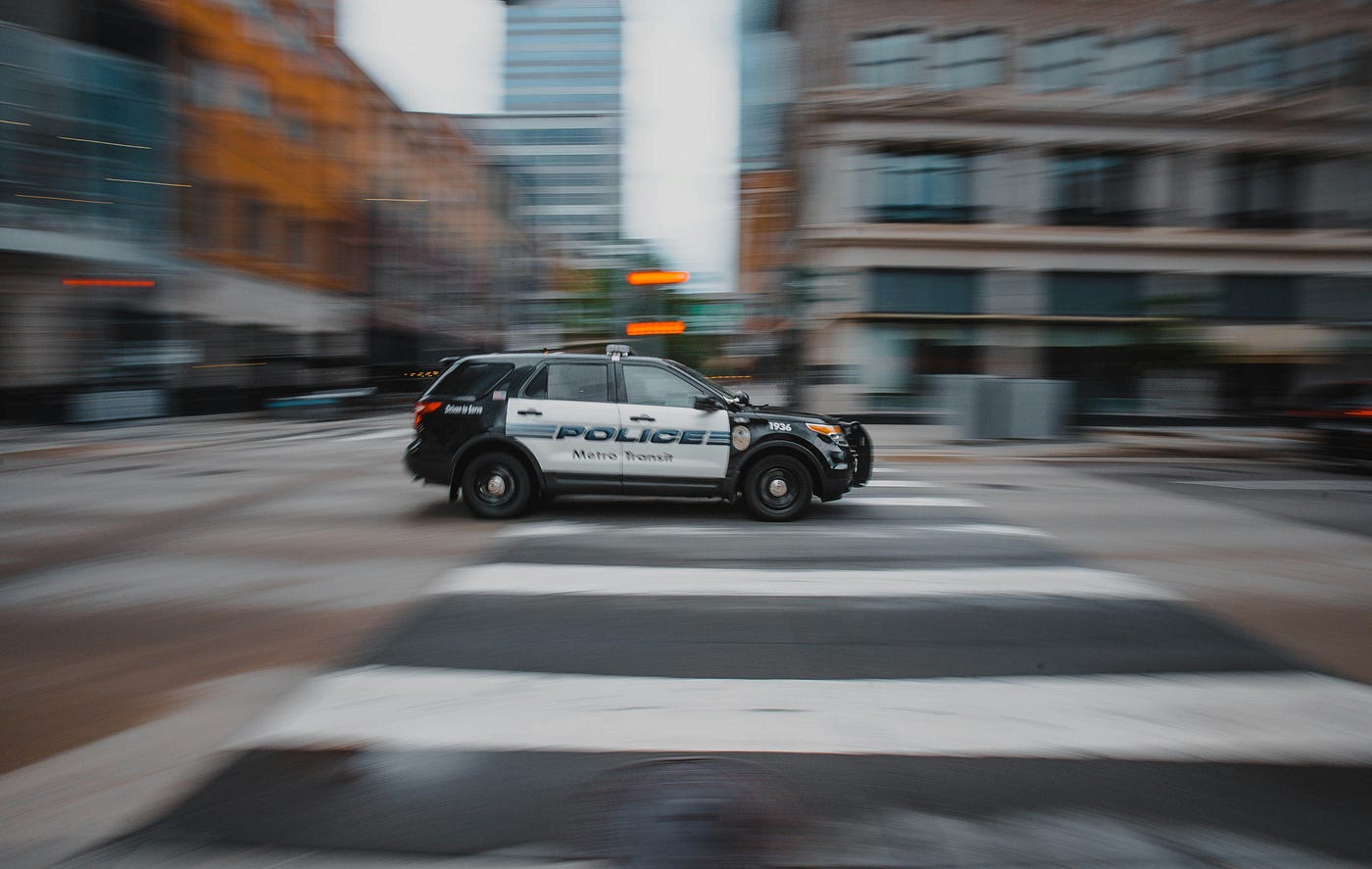
Capricious deportations stemming from traffic stops are causing serious and irreversible harm, endangering individuals, tearing families apart, and further deteriorating trust between immigrant communities and police.
Stops Impact Walkers and Bikers, Too
Drivers aren’t the only road users impacted by overzealous and unnecessary enforcement of minor violations. A suite of laws criminalizes people walking and biking as well, such as bans on biking on the sidewalk, not wearing helmets, evading fares, and jaywalking. These, too, have discriminatory impacts.
Take jaywalking — a textbook minor offense, which, until recently, could be punished with a $250 fine in New York City. Yet, like many other laws, jaywalking enforcement was applied unevenly across City precincts. While officers patrolling wealthier, whiter neighborhoods did not enforce the ban on jaywalking, officers in neighborhoods of color did so regularly.
Over the last few years, anywhere from 77% to 90% of all jaywalking summonses were issued to Black and Hispanic residents, putting these New Yorkers at risk of police violence, detention, or deportation. Though New York City recently decriminalized jaywalking to address this inequality, the disproportionate and discriminatory enforcement is well-documented across the country.
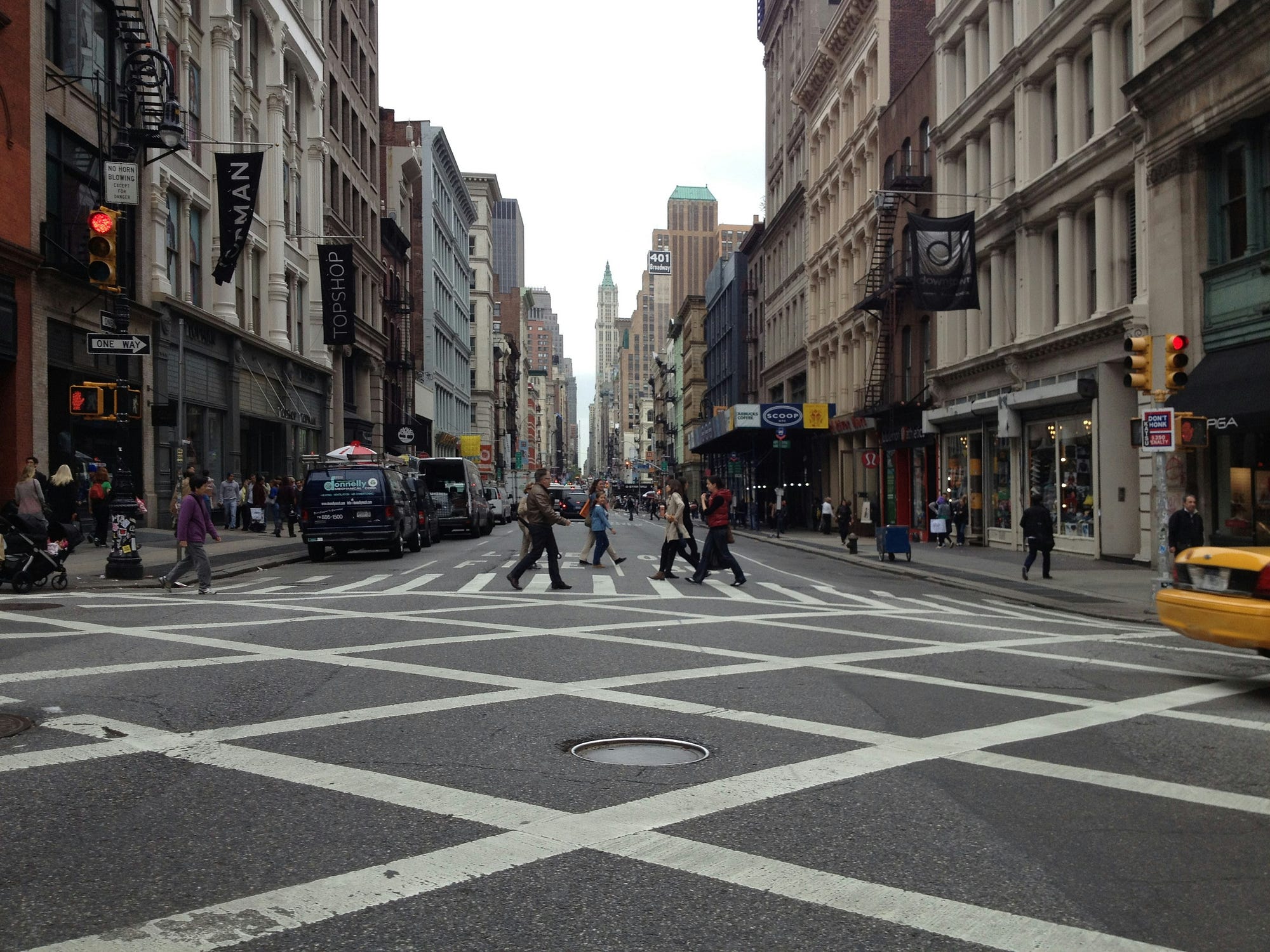
In addition to their discriminatory effect, these laws, pushed by the automobile industry, have cemented a bias in favor of cars and against pedestrians and bicyclists in American cities over the last century. Amid an ongoing crisis of roadway fatalities, these laws continue to cast blame for traffic deaths on the victims and the most vulnerable, rather than altering the underlying conditions that lead to fatalities in the first place, like the overwhelming prevalence of dangerous vehicles and the disinvestment in road safety infrastructure in predominantly Black and low-income communities.
Some cities and states are making progress by dismantling jaywalking laws. Recognizing their harmful effects — and that they have not been shown to improve roadway safety — cities including New York City, Denver, and Kansas City, and states including Virginia, Nevada, and California have all moved to decriminalize or deemphasize enforcement of jaywalking violations. More localities should follow their lead.
A new class of laws that too strictly regulate and specifically target traditional bike and e-bike riders also has the potential to further this harmful legacy. In an attempt to target the “impression of chaos and disorder,” police in New York City have begun issuing criminal summonses instead of traffic violations, requiring anyone breaking a traffic rule like running a red light or riding on the sidewalk to appear in criminal court.
These heavy-handed penalties against bikes and e-bikes are more strict than penalties levied against drivers of multi-ton motor vehicles. These incredibly severe consequences risk the legal status and safety of immigrant delivery workers, who have to enter criminal court despite delivery apps’ role in pushing them to speed and make unrealistically fast deliveries.
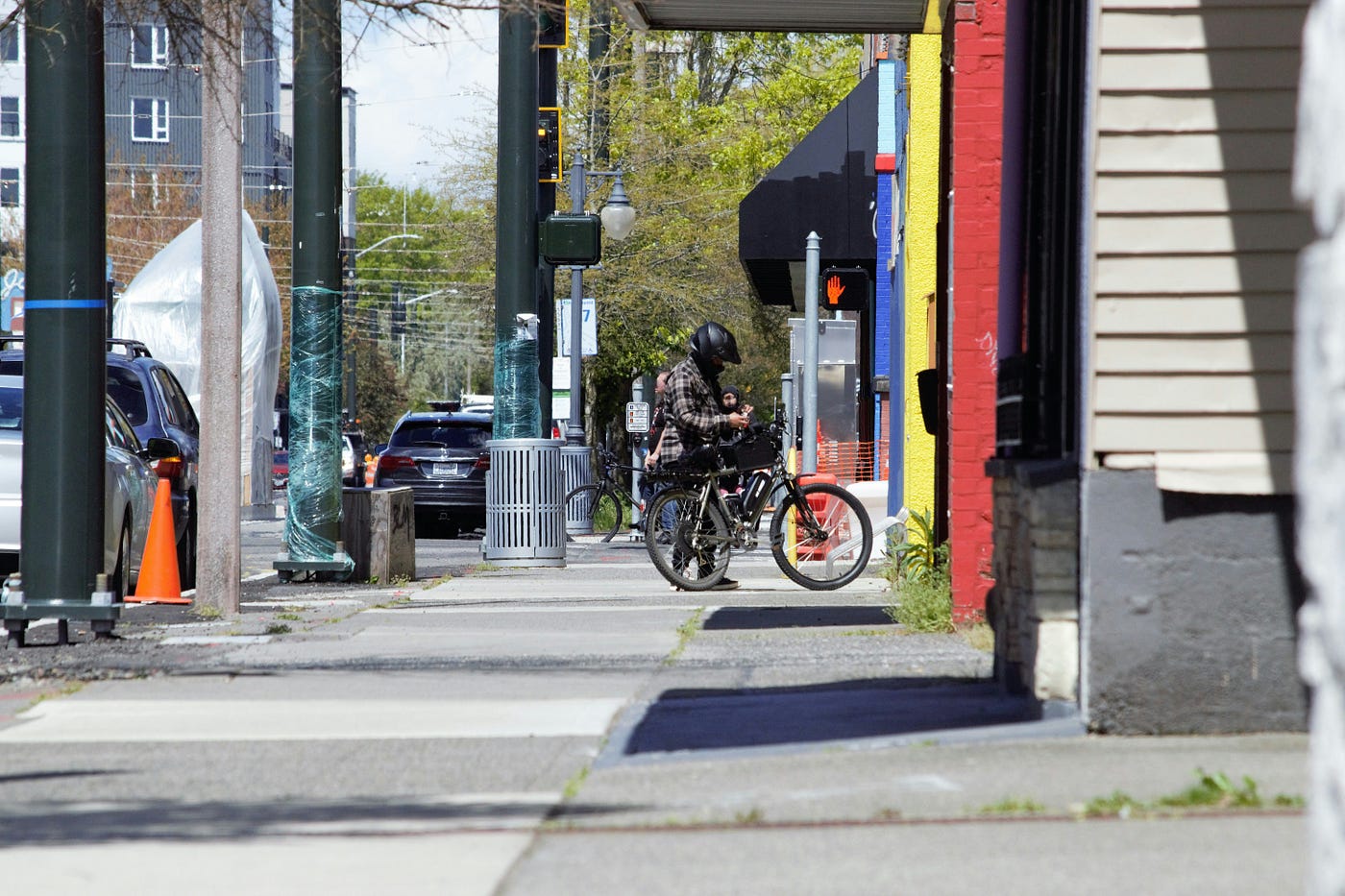
Other regulations, which have been passed in Honolulu, statewide in California, and are under consideration in New York City, among other places, set e-bike equipment specifications, speed limits, and registration requirements. While many transportation safety advocates support such laws, it is possible that the current nationwide patchwork of e-bike regulations may disproportionately affect Black, brown, and immigrant residents, who are less likely to own cars and more likely to rely on e-bikes for delivery work.
Criminal Enforcement Is Not The Only Choice
Criminalizing low-level stops for people walking, biking, and driving misses the forest for the trees. We have tried criminalizing our way out of systemic problems before; it has not worked, and it has harmed the very communities we claim to support.
More policing does not equate to safer roads. Adding unnecessary criminal penalties and pushing for heavy-handed enforcement of existing penalties points the finger in the wrong place. There are lower-cost and lower-risk solutions to holistically address safety, like investing in equitable road infrastructure, adding secure and private vehicle technology like intelligent speed assist devices, and piloting civilian alternatives to armed enforcement for low-level traffic offenses. Steps like these would also avoid exposing more people, and especially immigrants, to the criminal process, and would return time and resources to strained police departments.
Addressing road safety holistically would also help to reverse the astonishing growth in criminal penalties in general, which had been derided by advocates and lawmakers from across the political spectrum. Shockingly, there is no formal count of how many federal crimes are on the books, let alone state and local penalties.
In addition to being overly cumbersome, this makes it impossible for the average citizen — and even police officer — to keep track of the many laws, and creates a free-for-all discretionary enforcement landscape with discriminatory impacts.
American cities need to eliminate laws that serve no purpose but to entrap and criminalize the most marginalized. We must put an end to discriminatory traffic stops and allocate resources to where they are better served, including initiatives that will, in fact, improve roadway safety, efforts to revitalize the urban fabric, and new commitments to uphold the dignity, belonging, and well-being of all residents.
